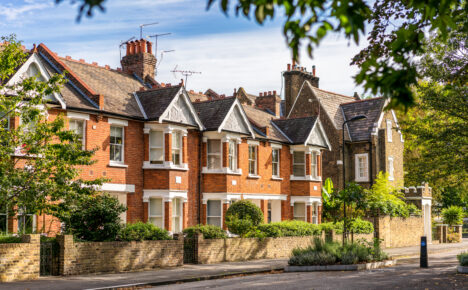B P Collins’ residential property solicitors take a deep dive into what having a leasehold means for you and how the law is changing.
What is a leasehold property?
Owning a long leasehold interest in a property means you own the property, but not the land on which it stands, for a fixed term period of several years. A leasehold property is a depreciating asset which is ultimately returned to the freeholder or landlord when the term of the lease ends. Leaseholders are also bound by contractual terms contained within the lease, such as the requirement to pay a service charge, ground rent and seek the freeholder’s or landlord’s permission to carry out any major works to the property.
Should leaseholders extend their leases?
Whether leaseholders should extend their leases depends on the unexpired term of their existing lease. If that term is approaching 80 years unexpired, it would be sensible to begin the lease extension process, because “marriage value” kicks in when a lease’s unexpired term falls below that number of years. Statute provides that the marriage value of a lease with a term in excess of 80 years is nil.
Marriage value is a calculation, usually carried out by a RICS accredited surveyor, which determines the increase in the value of the property following the completion of the lease extension and which reflects the additional market value of the property’s longer lease. The leaseholder must pay half of that perceived uplift in the value of the property’s lease as part of, and often in addition to, the premium payable to the landlord for extending the lease. The further a lease’s term falls below 80 years, the higher the perceived uplift in value of the property’s lease will be once it has been extended. Clearly this results in a higher premium payable to landlord.
Furthermore, if a lease has an unexpired term of less than 70 years, it will often, but not always, be un-mortgageable. This affects the marketability of the property considerably.
How can you extend your lease?
There are two ways to extend a lease: the statutory route; and the informal (voluntary) route.
Leaseholders have a statutory right to have their lease extended if they have owned a property for two years. The leaseholder instructs solicitors to serve a formal notice on the landlord confirming they wish to extend their lease and the premium they are willing to pay. The landlord has a prescribed period in which to respond and can either agree or make a counter-offer. If no agreement is reached at that stage the parties negotiate by reference to formal valuations carried out by independent surveyors until terms are agreed. Once terms are agreed, the landlord and leaseholder have three months to complete the lease extension. Statute provides that the leaseholder receives an extended lease of remaining term plus 90 years at a peppercorn rate, which is £0 ground rent.
Alternatively, a leaseholder can approach the landlord informally at any time to request a lease extension. The landlord is not obliged to agree, but often will, sometimes on less favourable terms for the leaseholder. There are no prescribed terms which the landlord must offer to the leaseholder with respect to extended term or ground rent if a lease is extended via the informal route.
How much does it cost?
It is not possible to give a figure because the premium payable for extending a lease is determined by its specific market value and the ground rent payable to the landlord prior to the extension. It is generally accepted that the leaseholder pays the landlord’s reasonable legal and other professional costs when the lease is extended, as well as their own. Most lease extensions will cost thousands of pounds.
What impact does the Government’s Ground Rent Bill have on leaseholds?
The Ground Rent Bill received Royal Assent in February 2022 with the Act coming into force in June, which means that the government’s objective of capping ground rents in new, long residential leases to a ‘peppercorn’ rent of zero is being implemented this year. As such, an existing lease will not be caught by the provisions of the Bill and the leaseholder’s ground rent under that lease will not change even after the Bill becomes law. A lease extension or deed of variation, however, is usually as a matter of law deemed to be a surrender of the existing lease and grant of a new lease of the same property. It is therefore anticipated that most lease extensions after the Act comes into force will impose peppercorn ground rents.
How much could homeowners save?
Thousands of pounds in reduced ground rent over the term of an existing lease could be saved, especially if a lease’s current ground rent is uncapped and subject to escalation (which can lead to unintended statutory consequences affecting the value and marketability of leasehold properties). A premium would, however, still be payable to the landlord to compensate it for its loss of rent and any marriage value.
For buyers of new properties, the reforms are likely to be a welcome change as it should stop them paying excessive ground rents. The changes do not, however, help existing leaseholders with high or escalating ground rents.
For advice please contact B P Collins’ residential property team on enquiries@bpcollins.co.uk or call 01753 889995.















